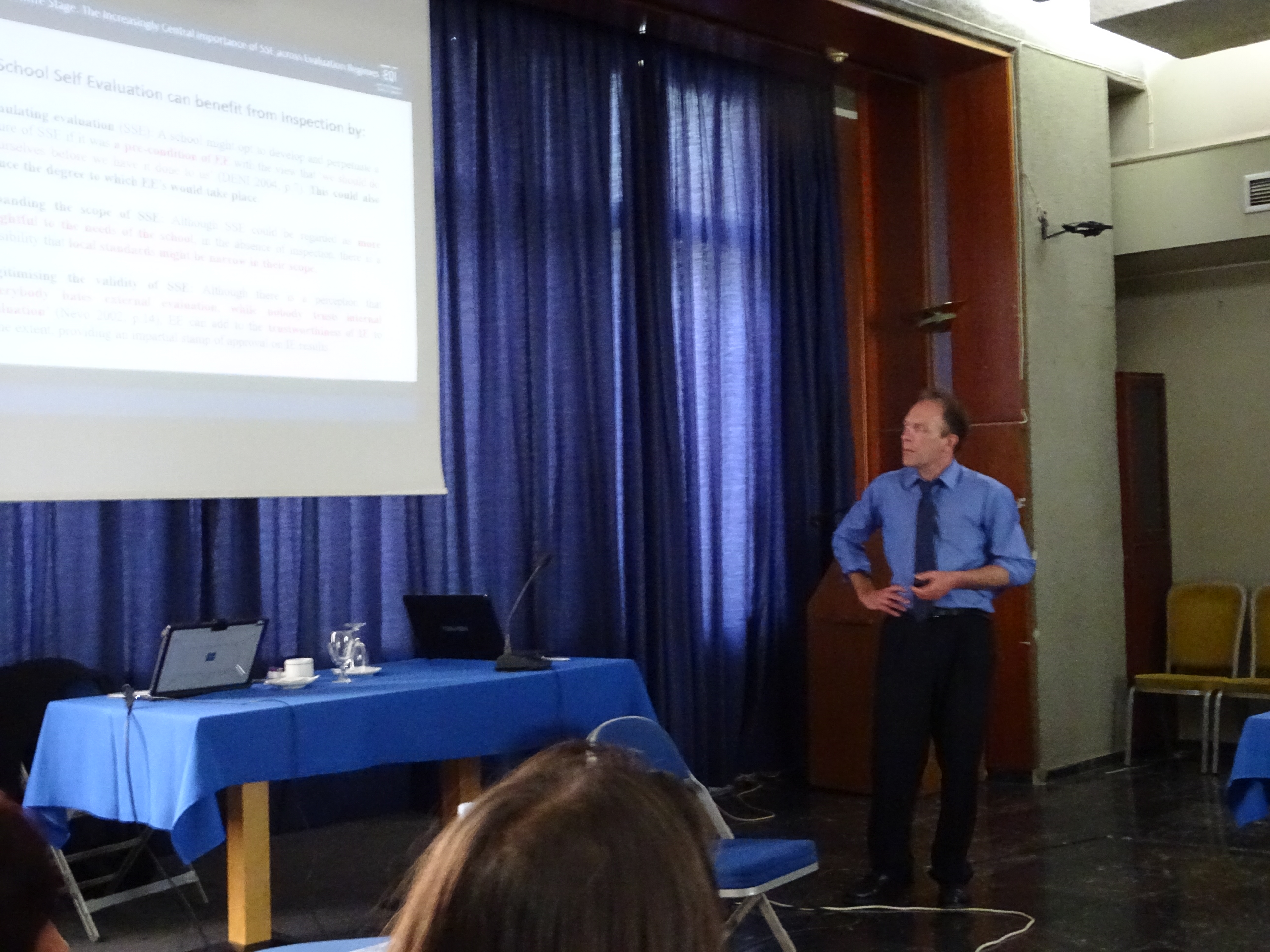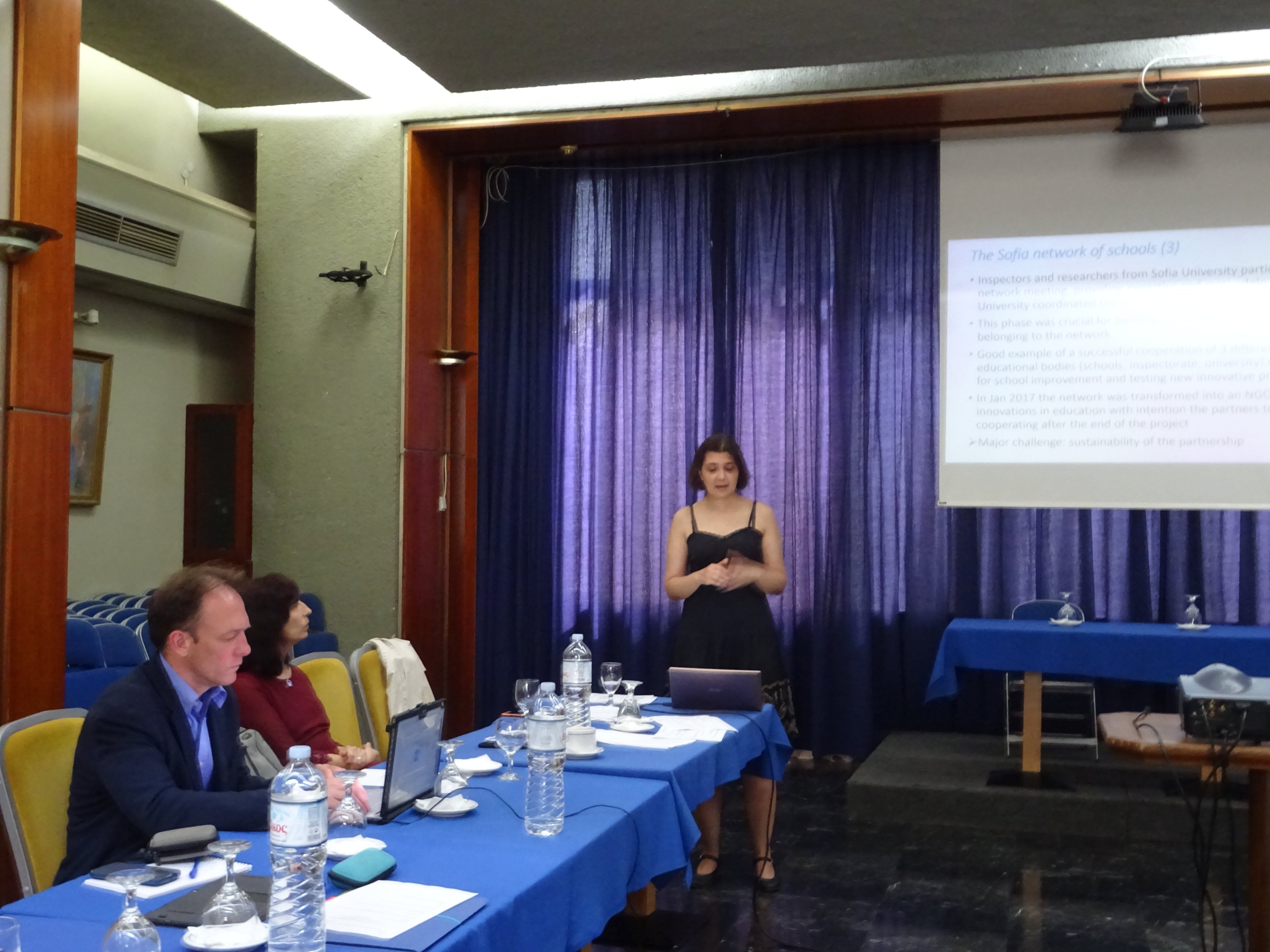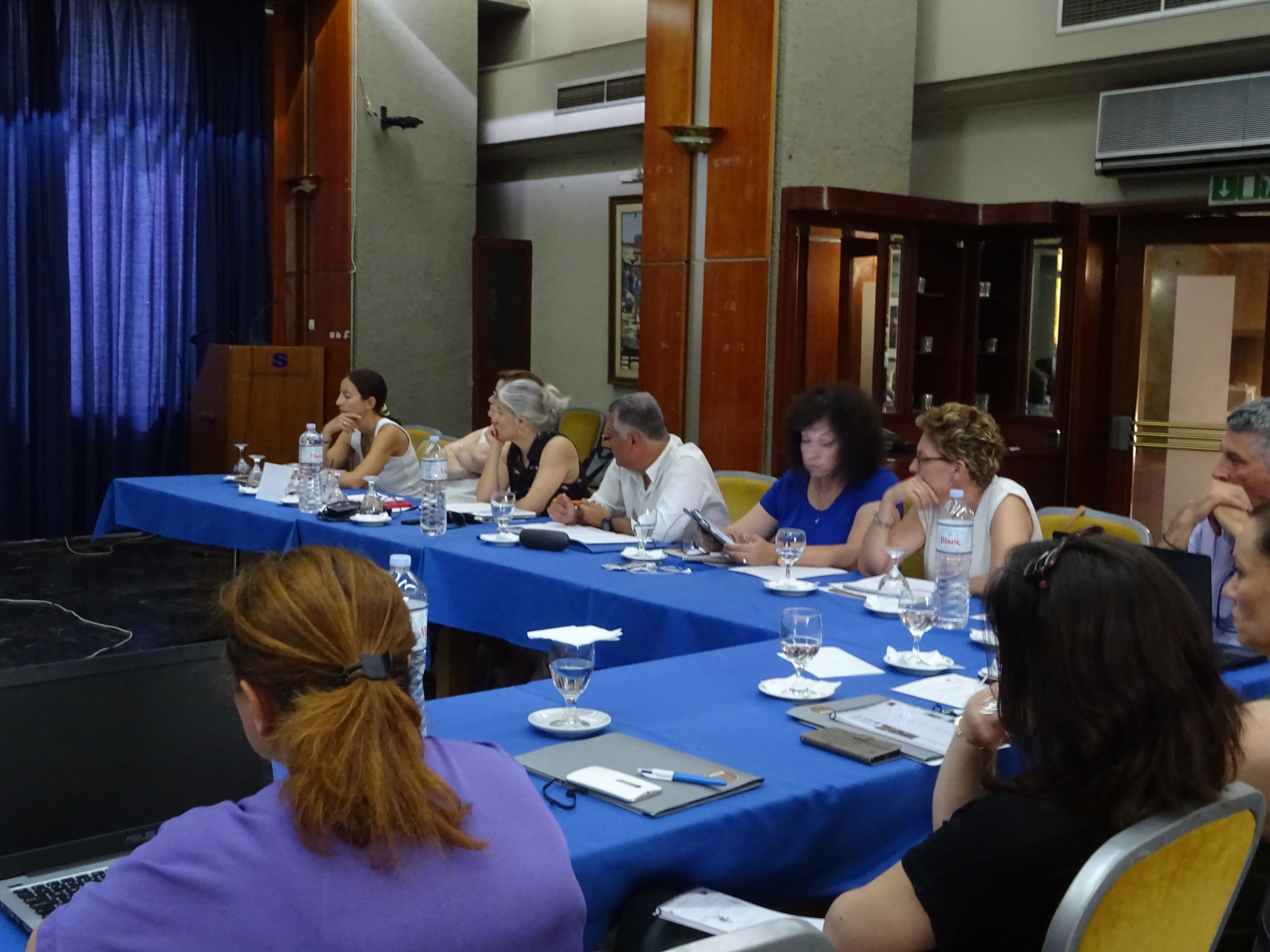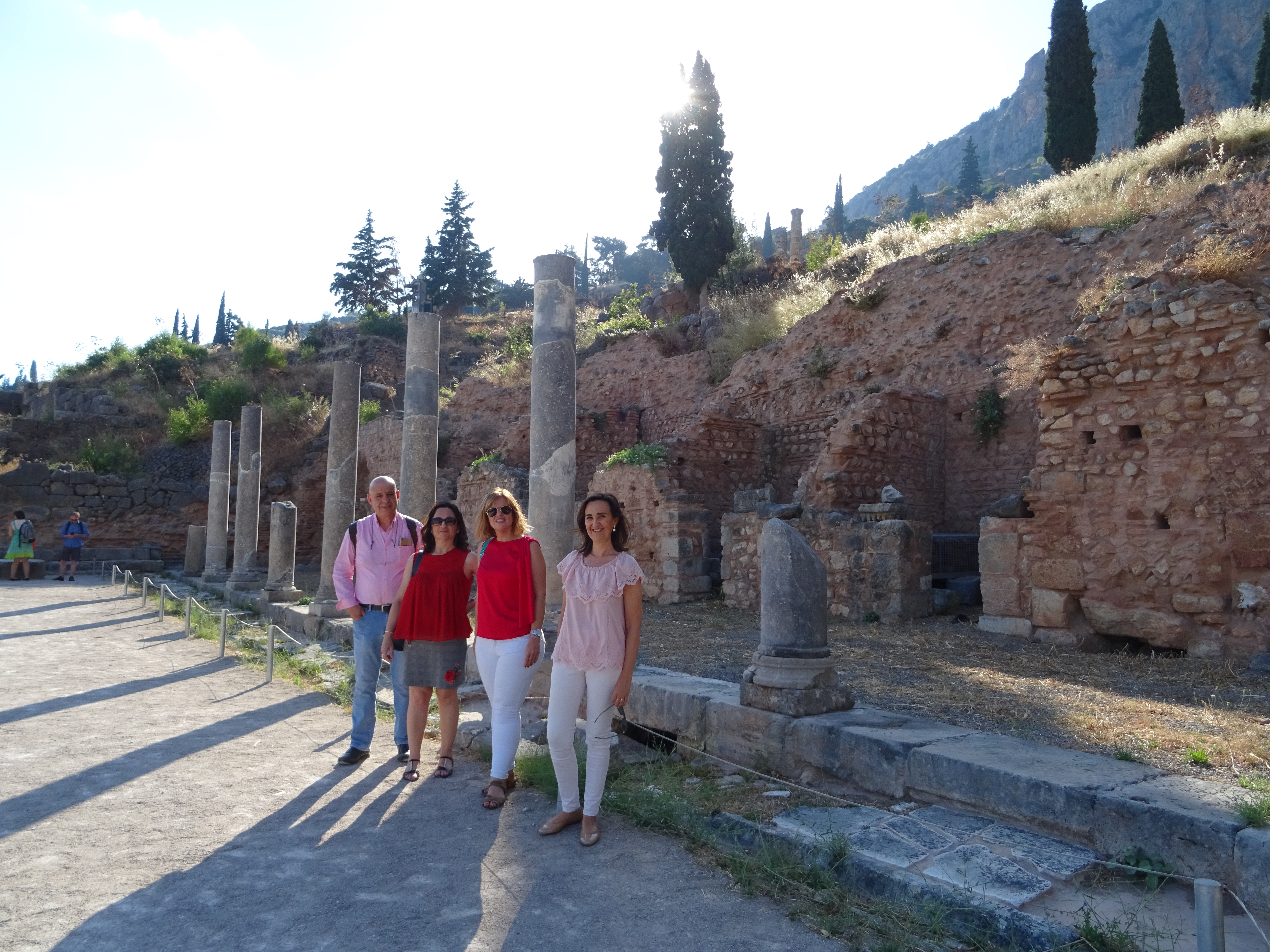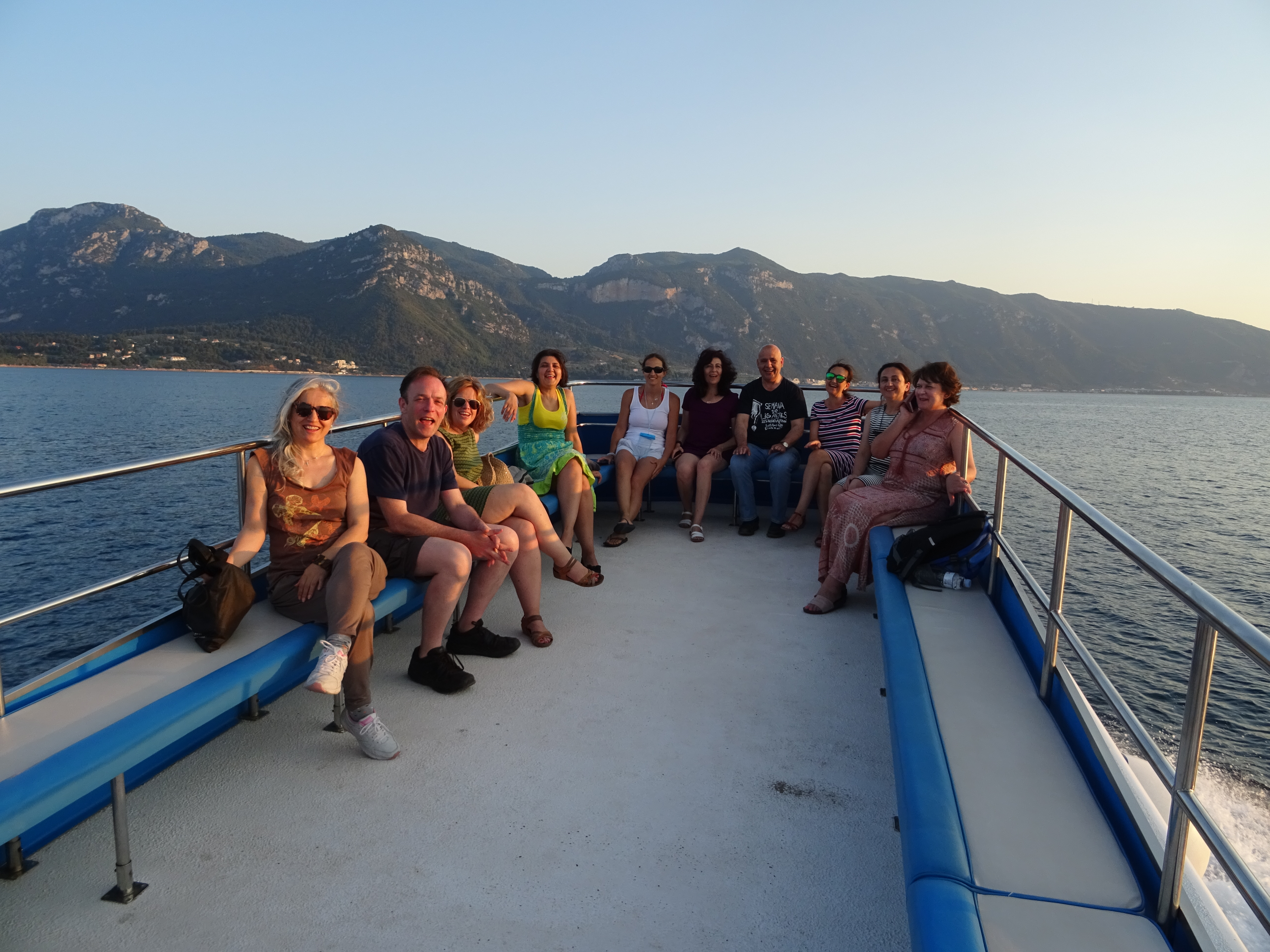June 24-29, Lamia (Greece)
The joint short-term training activity SS21DTIP was held in Lamia, Greece, from 24th to 29th June. Organized by the Directorate-General for Education of Central Greece (PERIFERIAKI DIEFTHINSI PROTOVATHMIAS and DEFTEROVATHMIAS EKPEDEFSIS STEREAS ELLADAS), it has consisted of a four-day training course on the inspection and evaluation of schools with a dual focus, school self-evaluation and peer-evaluation. In both cases, the role of the Inspectorate of Education in these evaluation practices has been set out by the lecturers. The presentations were given by participants from two of the partner institutions, Dr Martin Brown (Dublin City University, Ireland) and by Dr. Rossitsa Simeonova and Dr. Yonka Parmanova, both from Sofiiski Universitet (Bulgaria). Four inspectors from the Department of Education and Employment, Junta de Extremadura (Spain) and fifteen advisors, directors and teachers from PDE Stereas Elladas (Greece) participated as attendees of the course. The entire activity lasted six days, two travelling days and four days of training, from 25th to 28th June. On the 25th and 27th, Dr. Martin Brown of DCU gave presentations and organized workshops on School Self-evaluation and Inspection. On the 26th and 28th the participants from Sofiiiski Unversitet (Bulgaria), Dr. Rossitsa Simeonova and Dr. Yonka Parmanova gave presentations and organised workshops on peer evaluation and polycentric inspection. Training activities have been used to enrich the skills of all participants and to ensure the highest possible quality to the intellectual products that are being developed at this stage of the project and that of those that are developed in the coming year. The joint training event has also made it possible to know more about the inspector trainings in the different countries in relation to the forms of self-assessment and school evaluation. The theoretical-practical approach to the training activities carried out during the training activity has contributed to the development of the teaching and inspector skills of the participants, since concrete models of quality standards and indicators for the evaluation of schools have been developed, adapted to the different educational contexts in which participants carry out their teaching and inspector tasks. The specific themes developed by Dr. Martin Brown on the 25th were:
• School Self-evaluation . Its role and concept, its growing importance in the evaluation models of schools
• SSE: challenges and opportunities
• From the decentralization to the centralization of SSE. Its practical operation in countries such as Ireland and Northern Ireland
On the 27th the contents developed were
- Developing the vision of school improvement in relation to SSE
- School improvement approach through a six-step process
- Defining SMART objectives
- Development of improvement actions to achieve SMART goals
- Control and evaluation of a SSE-based improvement plan
- Development of Domains, Standards and Rubrics
- Group task to develop an improvement Plan based on SSE.
During the practical phase each group has presented a hypothetic three-year improvement plan.
As regards the content developed by SU (Bulgaria), they were: (26 June)
1. Educational networks: Nature, types, practices and challenges
2. Peer evaluation in education: Definition, importance, internships
3. The peer evaluation model in a network of schools in Sofia
4. Group work: Designing an improvement plan for a network of schools in the participants’ environment
(28 June)
1. Polycentric inspections in education and its characteristics
2. Polycentric inspection in Sofia, Bulgaria
3. Group work: Definition of quality standards and rubrics for the improvement plan designed on June 26.
Schedule

Presentations

Photos
